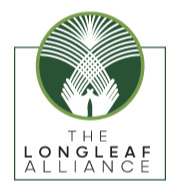Landscape Partnership Resources Library
What is a (Regional) Landscape Conservation Design (LCD) and how does this inform planning and working at smaller-scale units?
Find here Dr. Jean Brennan's presentation.
Introduction to LCCs and the Big Question: “Why.” Launching a National Landscape-level Conservation Planning Approach to Conservation
Find here Dr. Jean Brennan's presentation.
Day 2 Case Study Materials
Here you will find the materials that need to be downloaded for case scenarios for Day Two of the workshop. Please download before arriving.
Day 1 Case Study Materials
Please download the following folder which contains all materials for our case study session on Day 1.
Workshop Agenda
Find here a narrative agenda, including biographies of presenters. A detailed agenda will be developed after the RSVP process and uploaded here.
Materials to review prior to meeting
Find here a PDF of App LCC funded research that will be discussed during the workshop.
Application: Family Forestland Short-course - Focusing on Land Transfer to Generation "NEXT"
Please join us for a hands-on workshop with free legal guidance from professionals experienced in intergenerational land transfer and landowner testimonials of estate planning steps & strategies they have used.
Tennessee River Basin Network Agenda
Detailing presentations, discussions, and outcomes for the Tennessee River Basin Network Meeting.


























